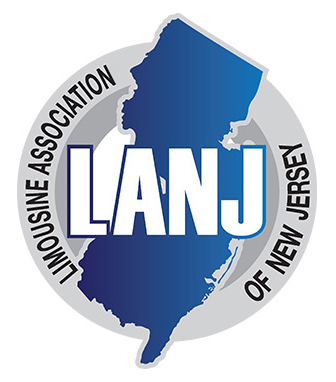- Details
- Category: Industry News
 LANJ President Jason Sharenow To ensure operators that they are not alone during the COVID-19 crisis, the Limousine Association of New Jersey (LANJ) hosted a web-based roundtable featuring professional from various sectors of our industry. Moderated by LANJ President Jason Sharenow of Broadway Elite Worldwide, the webinar included Mike Marroccoli of EPIC Insurance, National Limousine Association (NLA) President Robert Alexander of RMA Worldwide, Eric Coolbaugh of Access Commercial, Jeff Brodsly of Chosen Payments, Bill Faeth of Limo University, and George Jacobs of Windy City Limousine & Bus. Each of these leaders offered advice and insight designed to assuage the anxiety faced by every single operator today.
LANJ President Jason Sharenow To ensure operators that they are not alone during the COVID-19 crisis, the Limousine Association of New Jersey (LANJ) hosted a web-based roundtable featuring professional from various sectors of our industry. Moderated by LANJ President Jason Sharenow of Broadway Elite Worldwide, the webinar included Mike Marroccoli of EPIC Insurance, National Limousine Association (NLA) President Robert Alexander of RMA Worldwide, Eric Coolbaugh of Access Commercial, Jeff Brodsly of Chosen Payments, Bill Faeth of Limo University, and George Jacobs of Windy City Limousine & Bus. Each of these leaders offered advice and insight designed to assuage the anxiety faced by every single operator today.
“Many of us lived through the dot-com bubble burst in 2000, 9/11, the stock market crash in 2008… but none of us have had a business during a crisis like this,” said Sharenow. “Will we last long enough to experience the recovery period that will follow? We will. We are a resilient group. We are smart, and we are one.”
Marroccoli started by telling the audience that “we need to work together.” He’d been in active contact with the majority of carriers, seeking answers to the major questions posited by luxury ground transportation operators.
In regards to “mothballing” vehicles, as details vary from state to state, and are based on fleet size, Marroccoli advised operators to call their broker. EPIC had spoken to a few carriers, who, at the time of the teleconference, were offering reduced or suspended premiums for vehicles pulled out of operation. Similarly, operators with questions about workers’ comp should reach out to brokers, as premiums are often revised when staff is reduced.
When asked about company liability if client or driver is exposed to virus, Marroccoli stressed that it’s imperative that operators follow all recommended protocols for cleaning and sanitizing vehicles, and best practices for chauffeurs. Records should be kept of when and what was cleaned along with the name of any product being used.
The insurance talk concluded with a bit of unfortunate news regarding loss of business plans. Marroccoli said that viral or bacterial infection is excluded on most insurance. Generally, the workplace needs to have sustained physical damage.
The next speaker was Alexander, who encouraged all watching to fill out the survey distributed by the NLA. The goal is to compile the data and combine it with affiliated associations, such as American Bus Association and United Motorcoach Association, so that they will be able to “tell a story” in order to get federal assistance down the line. Alexander also made it clear that at this time, “there are no silos”—the NLA is looking to help all operators, whether they are members or not. From his perspective as an owner/operator, he advised viewers to get down to a skeleton and keep cash spend at an absolutely minimum.
Two representatives from the financial side of the industry were next to speak. First, Coolbaugh from shed some light on how his company is addressing the crisis.
“These are untreaded waters,” said Coolbaugh. “We understand that there is a cash flow stoppage. We are actively offering deferrals, and having conversations about peoples’ businesses.”
Coolbaugh clarified that the 90-day deferment will be tagged on to the back end of the loan. He also encouraged operators to look at their financing, as there are dangers if a loan is interrupted or changed, making it a “non-conforming loan.”
In an effort to help Chosen Payments’ clients, Brodsly announced his intention on rebating all net profits from his company’s credit card processing back to the operators.
“A lot of the industry has welcomed us … with open arms,” said Brodsly. “During this time, I don’t need to profit on the industry. We’ll analyze each account and rebate processing fees for Chosen’s clients.”
Brodsly also warned operators to avoid predatory lenders who take advantage of small businesses during tough periods. He advised that people should be skeptical of anyone willing to lend money now, as undoubtedly, the teaser rate will come back and bite you in the long run.
 Echoing the words of Alexander and Brodsly, Faeth used his screentime to discuss conserving cash flow. To get through what everyone hopes will be relatively short period of no work, he advised using a credit card and paying the minimums to cover some finances. The industry education also announced his intention to give away his CSR training program for free during this downturn. He asked operators to email him directly to receive the program.
Echoing the words of Alexander and Brodsly, Faeth used his screentime to discuss conserving cash flow. To get through what everyone hopes will be relatively short period of no work, he advised using a credit card and paying the minimums to cover some finances. The industry education also announced his intention to give away his CSR training program for free during this downturn. He asked operators to email him directly to receive the program.
Finally, veteran operator Jacobs had encouraging words for his peers with his trademark wit and candor.
“There is no blueprint for what we’re going to do today,” he said. “But we do know this is going to end… But as far is the future of our business goes, it’s going to come back.”
First and foremost, though, Jacobs advised viewers to pay their affiliates. Operators need the cash afforded to them for work that has be completed. This is particularly important for smaller companies. Jacobs also encouraged everyone—from owners to office staff—to be proactive with lenders and landlords in asking for relief.
“Most people in this industry are helping us, over and above what’s expected.”
To close the video conference, Sharenow fielded questions directly from Facebook users.
Visit facebook.com/limousineassociationNJ to view the session in its entirety.
[CD0320]
- Details
- Category: Industry News
 L to R: Ron, Brandan, and Jackie Stein of Exclusive Sedan Service
Exclusive Sedan Service is proud to announce that they are celebrating their 40th year in the luxury ground transportation industry. Founded in 1980 by Jackie and Ron Stein, this family-run business has been built core values that include safety, customer service, and efficiency.
L to R: Ron, Brandan, and Jackie Stein of Exclusive Sedan Service
Exclusive Sedan Service is proud to announce that they are celebrating their 40th year in the luxury ground transportation industry. Founded in 1980 by Jackie and Ron Stein, this family-run business has been built core values that include safety, customer service, and efficiency.Although Exclusive Sedan Service is Hollywood-area fixture, providing vehicles to corporate clients, VIPs, and the motion picture industry—you can often catch a glimpse of one of their classic vehicles in many major productions—the company is proud to offer their first-rate service to clients in over 750 cities worldwide.
“We are thrilled to celebrate Exclusive Sedan Service’s 40th anniversary,” says Ron. “This milestone would not have been possible without the love of family, unparalleled expertise of our team, support of our affiliates, and loyalty of our wonderful clients. Above all, infinite gratitude belongs to my son, Brandan Stein, whose leadership, vision, and passion expanded us into something far bigger and greater than I could have ever imagined.”
The second-generation Stein joined the company part time in 1998 making Exclusive Sedan Service a true family-run operation. Since then, Brandan was eventually promoted to vice president of operations, and now serves as president and COO.
“It has been my greatest honor to uphold the legacy of excellence my father, Ron Stein, established in the earliest days of Exclusive Sedan Service. My twenty-plus years of success in this industry is attributed to the support, knowledge, and contributions of our incredible team, clients, affiliates, and associates,” says Brandan.
Today, Exclusive Sedan Service has grown tremendously since its start as a single-car operation. Currently, the Steins run more than 40 in-house vehicles ranging from standard sedans and SUVs to minicoaches, and Sprinters.
Visit exclusivesedan.com for more information.
[CD0320]
- Details
- Category: Industry News

Avoid the Talking Heads
We’d normally encourage you to consume as much diverse media and information as possible, but hours and hours are filled with unnecessary and often discouraging coverage. Now is the time for information, not reactionary hysteria from the media—we’ll have plenty of time to grade our elected officials once this is over. A better alternative is to rely only on trusted sources, such as industry associations, government websites (local and national), or even set up specific Google alerts on your phone so it filters out as much of the nonsense as possible (see resources below). Any information CD shares is about your business and only from vetted sources.
Use Social Media Cautiously
Facebook and other social media sites are valuable ways to share suggestions and a few chuckles, but beware of erroneous information being spread regarding COVID-19. There’s nothing wrong with laughing at the hundreds of toilet paper memes that have circulated, but be especially wary of well-meaning friends sharing cures or treatments, recipes for homemade sanitizers, or anything medical related. The CDC knows better than your Facebook friends. Even political information can be woefully wrong or a terrible scam, so think twice before believing, clicking, and sharing. These posts can be cleverly disguised and appear to be from legit sources, but do your due diligence now, in the future, always. Check snopes.com if in doubt, or better yet, only rely on official sources.
Marketing?
According to a Facebook live broadcast by Simon Curtis of Curtis Gabriel, the key to any crisis is calm thinking and good decision making, while being both proactive and reactive. Marketing isn’t about advertising right now, but showing that you are engaged with your customers when they need it the most. Everyone has coronavirus fatigue; people are looking for hope. Share inspirational messages and show that you are human, too. Like and comment on your customers’ posts. Show how you can lend a hand to them and your community. How about a personal phone call to your customers? Most of all, don’t go dark and disappear from social media! There are a lot of decisions that you’re being forced to make right now, but keeping up with consistent content three to four times a week will show your customers that you are taking this seriously but also focused on the future—and that you’re ready for when America is moving again.
Get Creative!
- There’s no shame in promoting your ramped-up efforts to clean your vehicles—as long as you are using approved cleaners and sanitizing products. Don’t assume; check the list on the EPA’s website here: epa.gov/pesticide-registration/list-n-disinfectants-use-against-sars-cov-2. Communicate that with your current and future clients via email, on your website, and on social media.
- Many states have restricted restaurants to pick up or delivery only, although many of local options don’t have delivery services available. Check with your area restaurants to see if they could use your services. Those that already deliver might need help, too, as the demand grows.
- Offer an errand service to customers and their families. Many customers have older relatives or those with underlying illnesses who have been asked to self-quarantine. Picking up some essentials for them such as groceries or home essentials (toilet paper if you can find it!) can free up stressed care-givers for other tasks.
- Health care workers are putting in extra shifts in already-stressed medical facilities. Partner with a local hospital or medical office to offer late-night or end-of-shift transportation home for exhausted professionals. Sell it as a safer option than them driving while drowsy. But don’t forget to pay special attention to cleaning your vehicle before and after.
- As passengers are told not to use transportation options, such as flights or trains, they still need travel, for example, to sick or distant relatives. Offer longer-distance transportation for a special rate. They can multitask or just enjoy the ride. You know your business best, so be sure to check with your lawyer, accountant, and any local authorities on new services.
Official Resources
-
NLA: limo.org/page/COVID-19
- American Bus Association: buses.org/about/consumer-information/coronavirus-facts-not-fears
- American Ground Transportation Association: agtaweb.org
- Global Business Travel Association: gbta.org
- The Transportation Alliance: thetransportationalliance.org
- United Motorcoach Association: uma.org/covid19
- Small Business Administration: disasterloan.sba.gov/ela
- Centers for Disease Control and Prevention: cdc.gov/coronavirus/2019-ncov
- World Health Organization: who.int
We’ll keep you updated on social media (Facebook, Instagram, LinkedIn, and Twitter) and through our newsletter. Keep the conversation going and don’t forget that we’re stronger together!
[CD0320]

